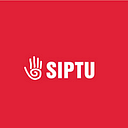Business “first” model for hospitality sector not fit for purpose
The tourism and hospitality sector is a key component of the Irish economy worth up to €7.6bn every year. As the sector prepares to reopen this Monday (29th June), hundreds of thousands workers are facing an unpredictable future.
Since the outbreak of Covid-19, workers in the hospitality sector have had their incomes slashed and have spent months living under a cloud of uncertainty.
There has been an unprecedented level of hotel, restaurant and bar closures, layoffs on an enormous scale. All the while, the voice of the hospitality worker has been largely missing from the plans to kickstart the industry as the restrictions ease over the remaining summer months.
Workers are at the forefront of the hospitality sector in Ireland, and in an industry that is hugely reliant on people, it is of paramount importance that those who work on the ground, providing services and assisting in the creation of profits for businesses, are included when implementing measures to address their own health and safety concerns and that of the public which they serve.
Before the Covid-19 pandemic erupted, 40.3% of staff surveyed by SIPTU reported that they struggled to pay any unexpected bills. It is clear that a Joint Labour Committee is required to ensure workers can avail of an industry wide sick pay scheme, to avoid the situation where workers who contract the virus will be faced with the choice of either feeding their families, or having to return to work and risk infecting colleagues and customers.
Employers in this multi-billion euro industry have resisted the introduction of a Registered Employment Agreement (REA) which could protect workers by setting a living wage across the industry and ensure decent working conditions.
Many hotels and restaurants, particularly in cities such as Dublin, Cork, Belfast and Galway, enjoyed huge profits in recent years which were not passed on to those who provide the services, make and serve the food, clean the rooms and maintain the operations.
The Irish hospitality industry is never shy about calling for additional financial support from the State which, if given, will have to be diverted from public services such as health and education.
Many big employers have spent the last number of months extensively lobbying politicians for the continuation of the job subsidy scheme for tourism and hospitality, an extension of the three-month local authority rates and charges waiver period for tourism businesses for a minimum of 12 months post Covid-19.
SIPTU believes any additional public funding used to fund any of these measures should only be offered to the industry if employers can sign up to the necessary changes required to ensure workers in the Irish hospitality industry are protected from the worst excesses of some employers.
A collaborative effort is needed to get this essential sector back up and running that places the health and safety and decent pay at its core.
The failure of the outgoing caretaker Government to include a workers’ voice on the Tourism Recovery Taskforce was a body blow to workers already reeling from years of being undervalued, at the mercy of bad employers and paid well below a living wage.
The incoming Government and Minister has a choice to make; initiate a collective approach to the sector that includes workers representatives or allow this “business first” model to continue that could lead to a potentially disastrous situation arising in hotels, bars and restaurants reopening across the country.
